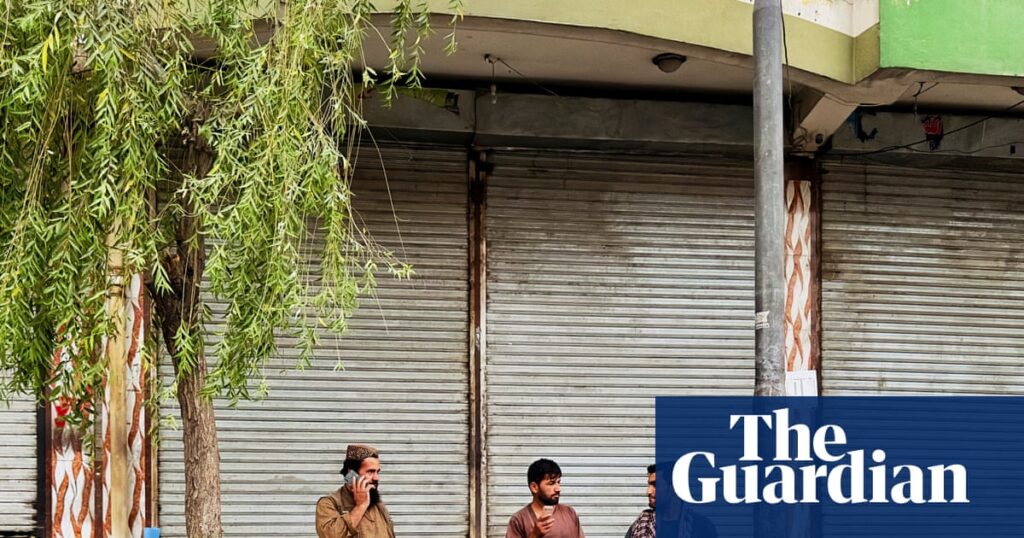Just before nightfall on Wednesday, the near-deserted streets of Afghanistan’s capital suddenly filled with people – mobile phones everywhere had pinged back to life.
With phones pressed to their ears or tightly gripped in their hands, Afghans poured on to the streets of Kabul to check if others were also online.
“Congratulations, the internet is back!” a shopkeeper shouted, as drivers honked in response. Children were handed balloons, parents bought sweets and friends gathered in restaurants – all while chatting animatedly on their phones.
For 48 hours, Afghans had been offline, cut off from mobile and internet services, in a telecommunications shutdown imposed by authorities without warning.
“It felt like we had gone back centuries. We were thinking of sending letters just to get updates from our families,” said Mohammad Rafi, 33, the owner of a mobile phone shop.
“The streets were empty – it felt like a holiday even though it was a weekday. But now, even in evening, it’s crowded again.”
Sohrab Ahmadi, a 26-year-old delivery driver, had sat idle for two days, unable to reach clients through the apps he works for.
Now, rows of bikes are lined up to collect orders from restaurants lit by neon signs or from juice vendors playing music. “It’s like Eid al-Adha; it’s like preparing to go for prayer,” he said.
Also visible on the streets was an increase in the number of women, who have faced sweeping restrictions under the Taliban government, including a ban on education beyond primary school.
“I can’t tell you how relieved I am. I’m breathing again,” said one young woman who is studying online and asked not to be named. “Online classes are the only hope left for Afghan girls.”
The UN said the shutdown in connectivity threatened economic stability and exacerbated one of the world’s worst humanitarian crises.
The Taliban government is yet to comment on the blackout.
The outage came weeks after the government said it would begin cutting high-speed internet in some provinces to prevent “immorality”.
The provincial spokesperson for Balkh, Attaullah Zaid, said at the time the ban had been ordered by the Taliban’s shadowy supreme leader, Hibatullah Akhundzada.
The internet was still a relatively nascent technology during the Taliban’s first rule between 1996 and 2001, when the country was too battered by war and impoverished to build infrastructure.
But in recent decades, the economy has become increasingly dependent on internet connectivity. Even in rural areas, many Afghans use mobile phones to conduct business.
“The world has progressed. This is not like 30 years ago,” said Ghulam Rabbani, a mobile credit seller, whose store was packed on Wednesday night. “We were hopeful that internet would return. It was a loss for everyone – including the government.”

